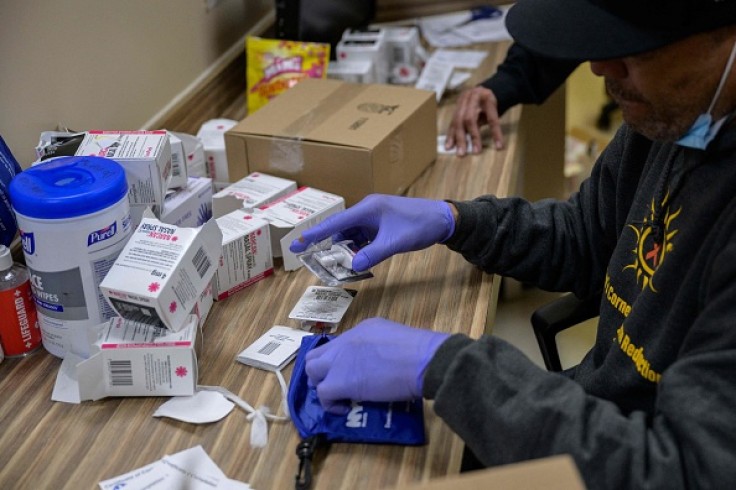
States across the United States are enacting tough legislation to combat the fentanyl overdose crisis, but critics argue that a law enforcement-centered approach may undermine public health goals and advancements in addiction treatment. Recently, three teenage girls were found unconscious in a car in Tennessee, with two of them dead from fentanyl overdoses. According to NY Times, the surviving 17-year-old was charged with their murders, citing a Tennessee law that allows homicide charges against individuals who provide fentanyl to someone who dies from it.
In response to the fentanyl crisis, many states have introduced numerous bills to increase penalties for the drug. Virginia classified fentanyl as "a weapon of terrorism," while Iowa made the sale or manufacture of less than five grams of fentanyl punishable by up to 10 years in prison. Around 30 states, including Arkansas, Texas, Pennsylvania, Colorado, and Wyoming, have drug-induced homicide statutes, enabling murder prosecutions even for sharing drugs that contain lethal fentanyl doses.
Critics Warn of Unintended Consequences and Racial Disparities in Fentanyl Laws
While these measures aim to combat the infiltration of fentanyl into the illicit drug market, critics argue that a heavy reliance on law enforcement may exacerbate the crisis. Evidence suggests that strict law enforcement approaches have not proven effective in the past and can worsen the situation. Additionally, they raise concerns about the disproportionate impact on low-level dealers, particularly people of color, who may be selling drugs to support their own addictions.
According to Washington Times, the emphasis on law enforcement clashes with recent advancements in addiction treatment and harm reduction. The Biden administration has prioritized harm reduction approaches, focusing on making drugs less dangerous for users. The Food and Drug Administration has approved over-the-counter sales of Narcan, an overdose reversal medication.
Critics fear a repetition of the punitive sentencing era of the war on drugs in the 1980s and '90s, which targeted crack and powder cocaine. Disparities in sentencing are already evident, with a significant number of those convicted for fentanyl-related substances being Black or Hispanic. A federal fentanyl crime bill passed in the House of Representatives has the potential to worsen these disparities.
Fentanyl, a highly addictive synthetic opioid, was responsible for over two-thirds of the nearly 110,000 overdose deaths in the United States last year. Illicit versions of the drug are frequently mixed into counterfeit prescription pills and other street drugs, leading many victims to unknowingly consume fentanyl.
Debate Surrounding Fentanyl Overdose Crisis
While bipartisan support for the new fentanyl laws often stems from families who have lost loved ones, critics argue that the focus on legislation overshadows the question of how to effectively save lives. They question the effectiveness of the laws and highlight potential conflicts with Good Samaritan laws, which provide immunity from prosecution to those who seek help for overdosing individuals.
Experts argue that the laws fail to address the primary sources of the drug supply, which involve international drug-trafficking networks. They emphasize the need for comprehensive policies that go beyond punitive measures and address the root causes of addiction.
Balancing law enforcement and public health approaches is crucial to combating the fentanyl overdose crisis. Critics urge policymakers to prioritize evidence-based solutions, such as harm reduction, access to treatment and prevention programs, and addressing the complexities of addiction. Without a multifaceted approach, the battle against fentanyl will remain challenging.
Related Article : Karamo Brown Opens Up About His Son's Overdose for the First Time, Says He Was About to Lose His Son